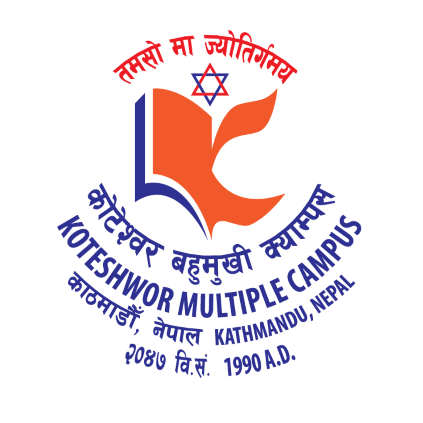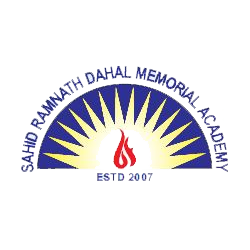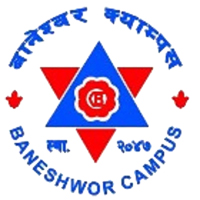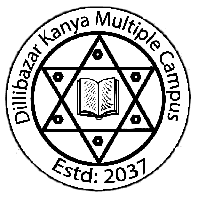Overview
Overviews of Bachelor of Education (B.Ed) at Pashupati Multiple Campus, Kathmandu, Nepal (affiliated with TU)
The Bachelor of Education (B.Ed) program offered by Pashupati Multiple Campus (PMC), Mitrapark, Chabahil, Kathmandu, is affiliated with Tribhuvan University (TU). Designed to prepare competent teachers, this four-year annual examination-based Program integrates professional and academic approaches to equip students with the skills and knowledge to teach at the secondary level.
Course Overview
The BEd program is an undergraduate degree focused on developing qualified educators who can teach two specialized subjects at the secondary level. The curriculum combines theoretical education principles with practical teaching methodologies, ensuring graduates are well-prepared to contribute to Nepal’s education sector. The Program offers major and minor specializations in Nepali, English, Mathematics, Science, Population Studies, and more.
Program Duration
The B.Ed Program spans four academic years, divided into annual evaluations. Each year focuses on a balanced combination of communication skills, professional core areas, and specialized teaching subjects, culminating in a teaching practicum during the final year.
Eligibility Criteria
General Requirements:
-
Aspired students who have passed the 10+2 or equivalent examinations recognized from their respective institutions with a minimum ‘D+’ grade in all Grades 11 and 12 subjects are eligible.
-
Candidates with a Proficiency Certificate Level (PCL) or equivalent qualification are also eligible.
Specific Requirements by Specialization:
-
Nepali Education: Minimum 200 marks in Nepali at the PCL or Grade 12 level.
-
English Education: Minimum of 50% marks in General English or equivalent; candidates must also pass an entrance exam conducted by the respective department.
-
Mathematics Education: Minimum of 200 marks in Mathematics at the PCL or Grade 12 level.
-
Science Education: Minimum of 100 marks in Physics, Chemistry, and Biology.
-
Health and Physical Education: Students must pass a physical fitness-related entrance test and should not have physical disabilities.
Admission Process
-
Submission of an application form along with required academic documents.
-
Participation in the entrance examination conducted by the respective departments.
-
The final student selection is based on academic performance and entrance test results.
Course Outline
The B.Ed Curriculum is structured into five groups:
-
Group A: Communication Skills – 2 compulsory courses (200 marks).
-
Group B: Professional Core Areas – 4 courses (400 marks).
-
Group C: Specialization Major – 10 courses (1000 marks).
-
Group D: Specialization Minor – 5 courses (500 marks).
-
Group E: Teaching Internship/Practicum – 1 course (100 marks).
Yearly Breakdown:
-
First Year: Communication Skills, Professional Core Areas, and Specialization Courses (600 marks).
-
Second Year: Core and Specialization Courses (600 marks).
-
Third Year: Continued focus on Specialization Major and Minor (500 marks).
-
Fourth Year: Electives, Teaching Internship, and Practicum (500 marks).
Subjects Offered
Specializations are available in the following areas:
-
Major Specializations:
-
Nepali Education
-
English Education
-
Mathematics Education
-
Science Education (Physical and Biological Sciences)
-
Health and Physical Education
-
Population Education
-
Geography Education
-
Economics Education
-
History Education
-
Political Science Education
-
Minor Specializations:
-
English Education
-
Health and Physical Education
-
Social Studies
-
Vocational and Non-Formal Education
-
Early Childhood Development
Program Objectives
-
Prepare skilled educators capable of teaching at the secondary level.
-
Develop a strong foundation in educational theories and practices.
-
Foster ethical and professional behavior in the teaching profession.
-
Equip students with subject-specific teaching methodologies.
-
Promote lifelong learning and adaptability to new teaching challenges.
Teaching Methodology
The Program employs diverse teaching methodologies, including interactive lectures, group discussions, case studies, role-playing, and hands-on practicum sessions. ICT tools, project-based learning, and collaborative teaching ensure a dynamic and engaging learning environment.
Learning Outcomes
Graduates of the Program will:
-
Demonstrate mastery in their chosen specialization areas.
-
Apply effective teaching strategies tailored to diverse learners.
-
Utilize educational technologies to enhance learning outcomes.
-
Exhibit strong communication and classroom management skills.
-
Conduct assessments and evaluations to measure student performance.
-
Promote inclusive and equitable education practices.
Future Scope
-
Pursue higher education, such as a Master of Education (M.Ed.) or other specialized programs.
-
Engage in educational research, curriculum development, and policy-making roles.
-
Explore teaching opportunities in schools, colleges, and training institutes.
-
Contribute to community development through non-formal and adult education programs.
Career Prospects
Potential career pathways for Graduates include:
-
Secondary School Teacher
-
Curriculum Designer
-
Educational Consultant
-
School Administrator
-
Trainer or Facilitator in NGOs and INGOs
-
Academic Researcher
Scholarship Opportunities
PMC offers scholarships based on the following:
-
Academic merit.
-
Financial need.
-
Remote district residency.
-
Specific criteria set by Tribhuvan University and PMC’s policies.
Fee Structure
Tribhuvan University and the PMC Fee Determination Committee determine fees. For detailed information, contact the campus administration.
Extracurricular and Co-Curricular Activities
PMC encourages participation in educational workshops, teaching seminars, debates, and community service projects. These activities help students develop interpersonal skills, confidence, and professional networks.
Real-World Application
The Program incorporates practical experiences through internships, lesson planning, and supervised teaching practices. These activities bridge the gap between theoretical learning and real-world classroom challenges.
Sustainability and Social Impact
PMC’s Program emphasizes the role of educators in promoting sustainable development and social equity. Graduates are encouraged to implement eco-friendly practices and address societal issues through inclusive education.
Skill Development
Students gain essential skills, including:
-
Lesson planning and curriculum development.
-
Classroom management and conflict resolution.
-
Effective communication and public speaking.
-
Adaptability to diverse learning environments.
-
Proficiency in using ICT tools for teaching.
Global Perspective
The Program incorporates global trends in education, preparing students to meet international teaching standards. Exposure to multicultural learning environments fosters a broad understanding of diverse educational practices.
Facilities and Support
PMC provides:
-
Well-equipped classrooms and libraries.
-
ICT and science labs.
-
Career counseling and academic advising.
-
Support for research and extracurricular activities.
Why Choose the Bachelor of Education (B.Ed) Program?
The PMC program combines rigorous academic training with hands-on teaching experiences, preparing students for impactful careers in education. The curriculum’s emphasis on practical learning, ethical teaching, and lifelong skill development ensures that graduates are equipped to excel in diverse educational settings.
Is the Bachelor of Education (B.Ed) Program Right for You?
Suppose you are passionate about teaching and wish to contribute to developing Nepal’s education sector. In that case, the program offers the ideal platform to build your skills and make a difference in society.
What is the Future of the Bachelor of Education () Program?
As education evolves globally, Graduates will be critical in implementing innovative teaching methodologies, addressing diverse learning needs, and fostering sustainable educational practices.
How to Improve Your Study of the Education Program
To excel in the Program, focus on active lecture participation, engage in practical teaching experiences, and utilize available resources like libraries and online learning platforms. Collaborate with peers, seek guidance from mentors, and stay updated on modern teaching trends and educational technologies.
Conclusion
The Bachelor of Education () program at Pashupati Multiple Campus offers aspiring educators a robust foundation. With its comprehensive curriculum, practical focus, and commitment to excellence, the Program prepares graduates to meet the challenges of modern education. By fostering professional growth and ethical teaching practices, PMC ensures its graduates are well-equipped to contribute meaningfully to Nepal’s education system.
Contact Pashupati Multiple Campus's administrative office for detailed information on the Bachelor of Education (B.Ed) course, including fees, scholarships, facilities, counseling, eligibility criteria, etc.



















